Gerald Markowitz shines light on corporate bad behavior
Distinguished Professor of History Gerald Markowitz and long-time writing partner David Rosner, a Professor of Sociomedical Sciences at Columbia University, have been researching industrial pollution and contaminants since the early 1970s. Their first jointly-authored book, Deadly Dust: Silicosis and the Politics of Occupational Disease in Twentieth-Century America, explored historical evidence of the lung disease silicosis, which is a hardening of the lungs due to inhaling dust found in sand or rock. Thanks to Deadly Dust, Markowitz and Rosner came to the attention of lawyers bringing workplace safety suits on behalf of construction workers suffering from silicosis, launching a long career of research and expert testimony on occupational disease and toxic substances. In the early 2010s, the duo began an investigation into asbestos and asbestos-related disease.
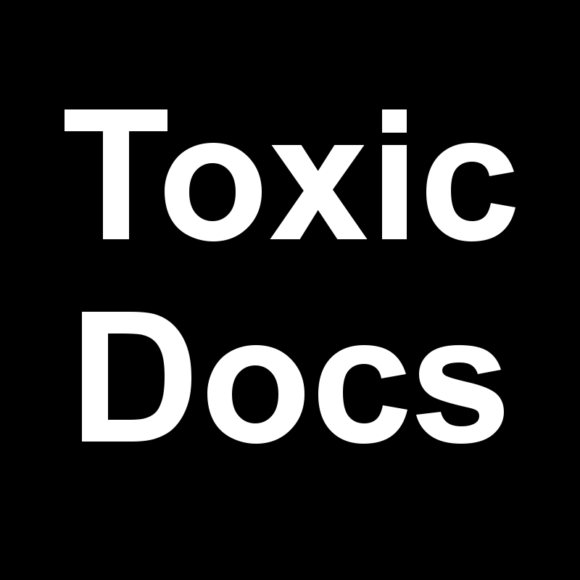 Their work turned up hundreds of articles on the dangers of asbestos, now a watchword for poisons that can lurk in our homes, dating from 1898 to the present. Markowitz and Rosner also referred to corporate records and documents made public through court discovery; a more recent project called ToxicDocs is an open-source, online database of more than 15 million pages of documents related to silica, lead, vinyl chloride, and asbestos that were previously not easily accessible.
Their work turned up hundreds of articles on the dangers of asbestos, now a watchword for poisons that can lurk in our homes, dating from 1898 to the present. Markowitz and Rosner also referred to corporate records and documents made public through court discovery; a more recent project called ToxicDocs is an open-source, online database of more than 15 million pages of documents related to silica, lead, vinyl chloride, and asbestos that were previously not easily accessible.
In June, Markowitz’s expertise was featured prominently in the American Journal of Public Health, in an article detailing a representative episode in the history of the struggle between industry and regulators. In “Nondetected: The Politics of Measurement of Asbestos in Talc, 1971-1976,” Markowitz and his co-authors describe the years-long interval between the talc industry’s acknowledgement that asbestos is toxic and their taking action to protect consumers, and the subsequent conflict between the Conflict, Toiletry, and Fragrance Association (CTFA) and the U.S. Food and Drug Administration (FDA) over regulating appropriate methods for detecting asbestos contamination in consumer talc products and setting safety standards.
The focus of the article, said Professor Markowitz, “was that the cosmetic industry, I think very consciously, used this concept of nondetected, which we as consumers think of as ‘no asbestos in the talc,’ but nondetected could mean enough asbestos in the talc to cause disease. And that’s what the industry understood, but consumers did not.”
The CTFA’s 1970s victory in lowering detection standards and advocating for self-regulation is still bearing fruit; recent lawsuits against talcum powder manufacturers allege the household product causes cancer due to asbestos contamination. As recently as 2018, courts awarded plaintiffs record damages of close to $4.7 billion in a case against manufacturers, capturing public attention.
We sat down with Professor Markowitz to talk about his work researching industrial poisons and about corporate responsibility to the consumer in today’s world. Read on to hear from Professor Gerald Markowitz in his own words.
Why do you believe that talc product manufacturers continued to accept a lower standard for asbestos eradication despite known health dangers, not to mention the risks of litigation?
When they developed this idea, in the 1970s, their basic argument was that there should be as little federal regulation as possible. [The CTFA] was able to lobby the federal FDA that the technologies that the FDA was proposing were not able to be completely accurate, would give too many false positives, would take a long time to do, and would be costly. So they proposed their own method. And they’re able to eventually convince the FDA that it should not be federal but industry regulation.
But what they admit privately is that their method, which is not as demanding as the FDA’s proposed method, was not necessarily accurate and was not necessarily consistent. So to a certain extent, they were really able to forestall regulation by claiming that they could do as good a job [of detecting asbestos in talc products], even though they themselves admitted that they could not do as good a job. And by the very nature of their method, they were going to uncover much less asbestos than the FDA’s method was capable of uncovering.
Do you think there’s something special about the current moment that made this article of particular relevance?
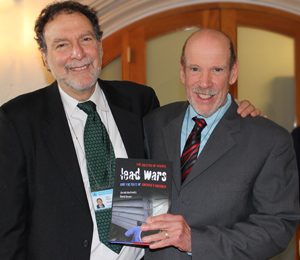
I think it was the variety of ways that deregulation has had an impact on the health and welfare of people in the United States and other parts of the world. To the extent that these articles could help to call attention to that happening, they are important. The advantage of history is that we are able to really see the process unfold in a kind of detail that we don’t necessarily have in observing regulatory of anti-regulatory actions taking place at the moment we’re living in. That level of detail I think is instructive in terms of being able to understand how similar things could be happening today.
Would you like to see this history galvanize some kind of action?
The most important thing that can happen is that people really have to take politics seriously. The United States has a long history of mass movements really demanding and achieving fundamental reforms. Just going back to the 1960s, the demand for civil rights, the efforts of people to get voting rights for African Americans, that didn’t happen simply because Congress decided to pass a law; people were demanding it in mass actions. These are really instructive in terms of what can happen today, and even what is happening today.
Pieces accompanying your article in the AJPH, such as the one by former Assistant Secretary of Labor for the Occupational Safety and Health Administration David Michaels, suggest that corporate influence is getting stronger, to the detriment of consumer and public health. The current administration has loosened or degraded regulatory standards for a variety of products — should we expect more legal battles down the line?
Yes, absolutely. Since the 1970s there has been a very sustained effort by many businesses to oppose regulation, and you get the classic statement by Ronald Reagan, when he said that ‘government isn’t the solution, government is the problem.’ I think the legacy of that, of the push for deregulation as a means of stimulating the economy and freeing business to innovate and all of those kinds of ideas, I think the legacy of that is going to be a variety of problems, not only in consumer products but in environmental damage. It’s going to be for workers, for consumers, for people living in communities where toxic substances are going to be released, we’re going to be suffering those consequences, and the unfortunate thing is that it’s only going to be remedied in retrospect.
And to add one other element, we know that the burden, especially of environmental pollution, toxic waste, global warming, is going to affect poor communities and communities of color to a much great extent than richer communities. At a college emphasizing social justice, this becomes an even more vital issue.
Are there other consumer products known to include dangerous adulterants that are similarly being ‘underregulated?’
BPA [bisphenol A, a chemical used to make certain plastics since the 1960s] is one example; a lot of household cleaners and flame retardants are another one. We’ve discovered that flame retardants are extremely dangerous to people, and that people have them in their bodies. Formaldehyde is another one; there was a scandal about formaldehyde in temporary housing given to people after Katrina, that was unsafe.
There are lots of things we have clues about, but the real scandal is that chemicals are being produced and we’re using them in very large quantities, that have never been tested. And in the United States we have this philosophy, innocent until proven guilty. It’s the same philosophy with chemicals — they are innocent until proven guilty. The Europeans have a system, chemicals can’t be introduced until they’re proven safe. It’s a basic difference in philosophy that companies need to prove that something is safe before they can experiment on us and ensure it doesn’t cause cancer. But in the United States they say that if it does cause cancer, we’ll take it off the market, but that’s very difficult to prove and you’ve done the damage already.
You note in your article that talc researchers were disappointed when their work became known to the industry, but that ‘nothing was done until the results became public.’ Do you think it remains true in cases of corporate wrongdoing that nothing is done until the public finds out all the information?
In the 1970s, there was this wonderful act passed called the Freedom of Information Act (FOIA). The fundamental principle behind that was that if you shine the light of publicity and information and people have that, then they have the ability to act in their own interests. One contribution that historians can make is, using the older historical records, we can cast a light on activities and attitudes and actions that permit people to see what is going on and demand change.
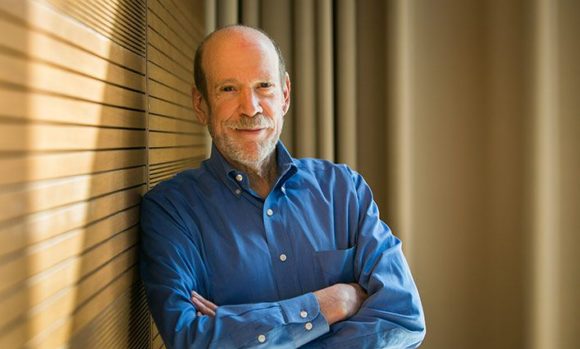
Gerald Markowitz is a Distinguished Professor of History in the Interdisciplinary Studies Department at John Jay College and the Graduate Center of CUNY. His research focuses on the history of public health in the 20th century, environmental health, and occupational safety and health. He has authored a number of books, most recently Lead Wars: The Politics of Science and the Fate of America’s Children, also in cooperation with David Rosner.
Research Productivity 2018: A Thread
In June 2019, OAR shared a few of our 2018 most productive scholars with our Twitter followers. Check out the whole thread below, and don’t forget to follow @JohnJayResearch and the researchers mentioned below to get more information in real time!
Last year we recorded more than 700 journal articles and book chapters published by @JohnJayCollege faculty members! While we finish adding up this year’s #JJCResearch productivity, we want to introduce you to some of our most productive #JJCFaculty scholars
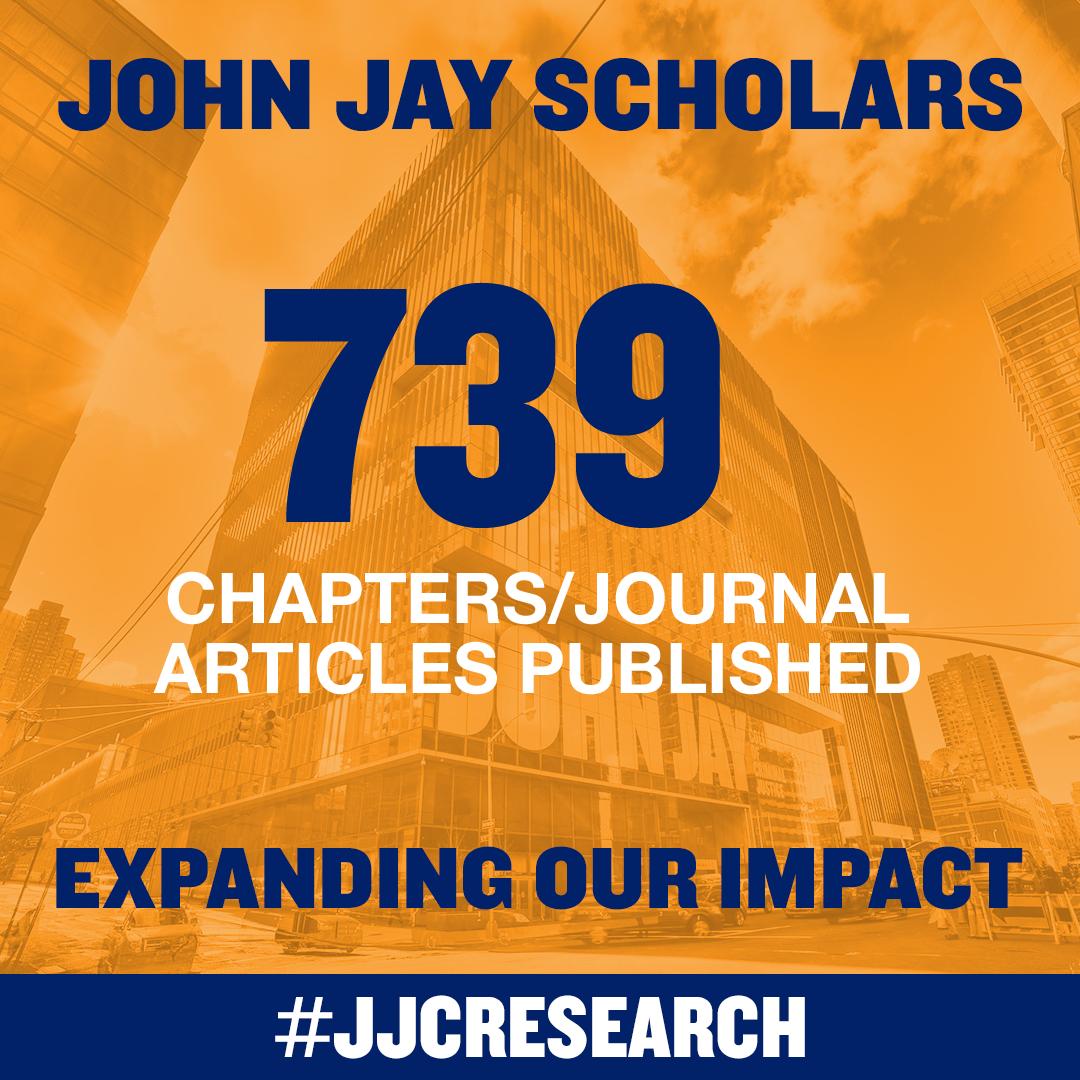
First up is @ktwolff11, who also won the 2019 Scholarly Excellence Award and the Donal EJ MacNamara Award for significant scholarly contributions to #criminaljustice! His most recently published article examines patterns of recidivism after a sex offense, find it here: (bit.ly/2XaqWmw)
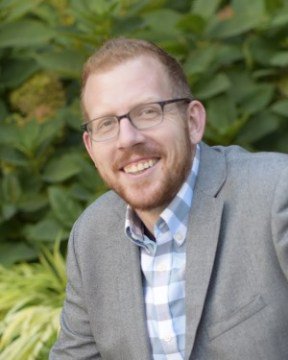
Next is @kevinnadal, @JohnJayCollege professor of psychology and the author/editor of two books in 2018! His research explores the impacts of microaggressions on the mental health of marginalized groups including people of color, women, LGBTQ individuals, & more. #JJCResearch
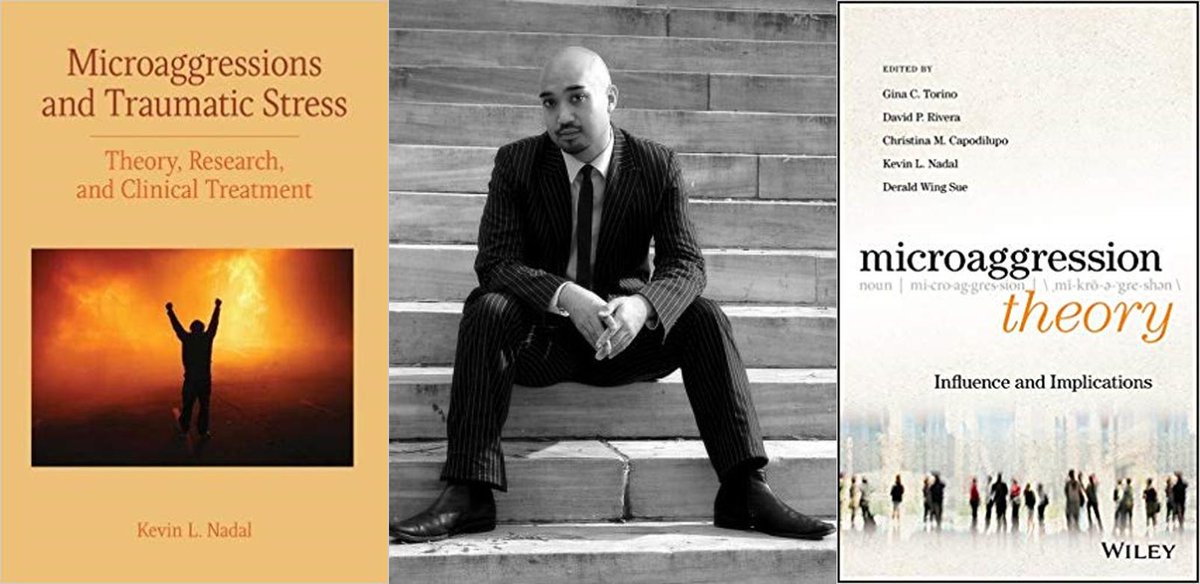
Today’s ft. #JJCFaculty scholar is @ElizabethJeglic, who published 2 books, 9 peer-reviewed articles, 6 book chapters, and 7 online articles and blogs last year!! Her research focuses on sexual violence prevention — her latest article is in journal ‘Sexual Abuse’ #JJCResearch

Next up is @JohnJayCollege criminal justice prof @PizaEric. Not only is he often featured by the media as an expert on policing matters, but he published 13 journal articles in 2018 on the data behind risk-based policing, CCTV, and more! #JJCResearch
Do you know @JohnJayCollege poli sci prof Samantha Majic? An OAR #BookTalk alum (), last year she published new book “Youth Who Trade Sex in the U.S.” and has been speaking and writing about the harms of & issues surrounding sex trafficking. #JJCResearch
You can watch her 2014 book talk here: (bit.ly/2KAdH8P)
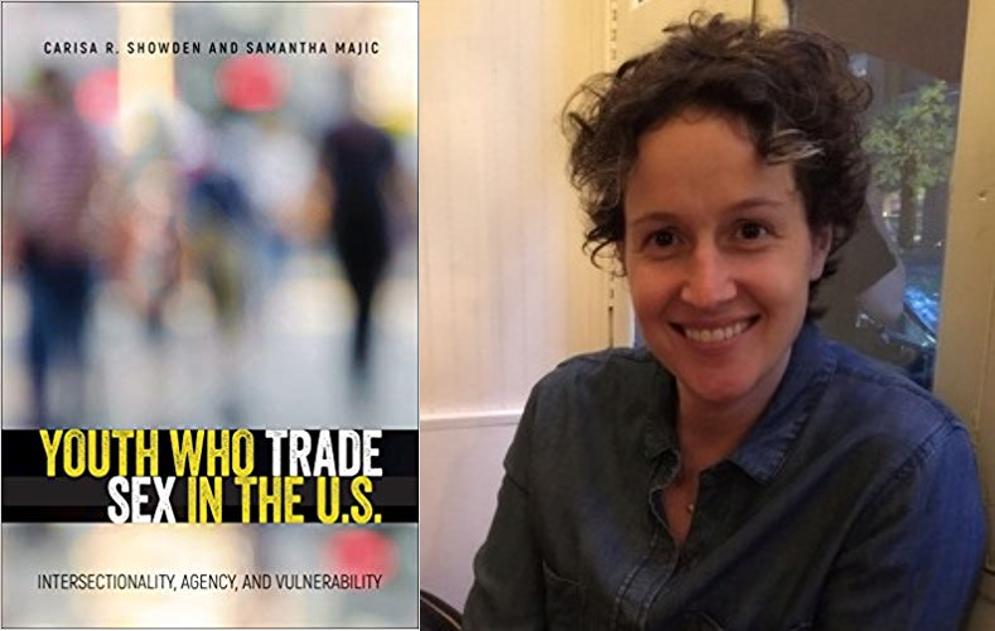
Last year, @DrMazzula, who is the founder of the @LatinaRAS as well as a @JohnJayCollege prof, kept busy writing and presenting about two key issues: microaggressions, and gender/minority representation in academia. #thisiswhataprofessorlookslike #JJCResearch
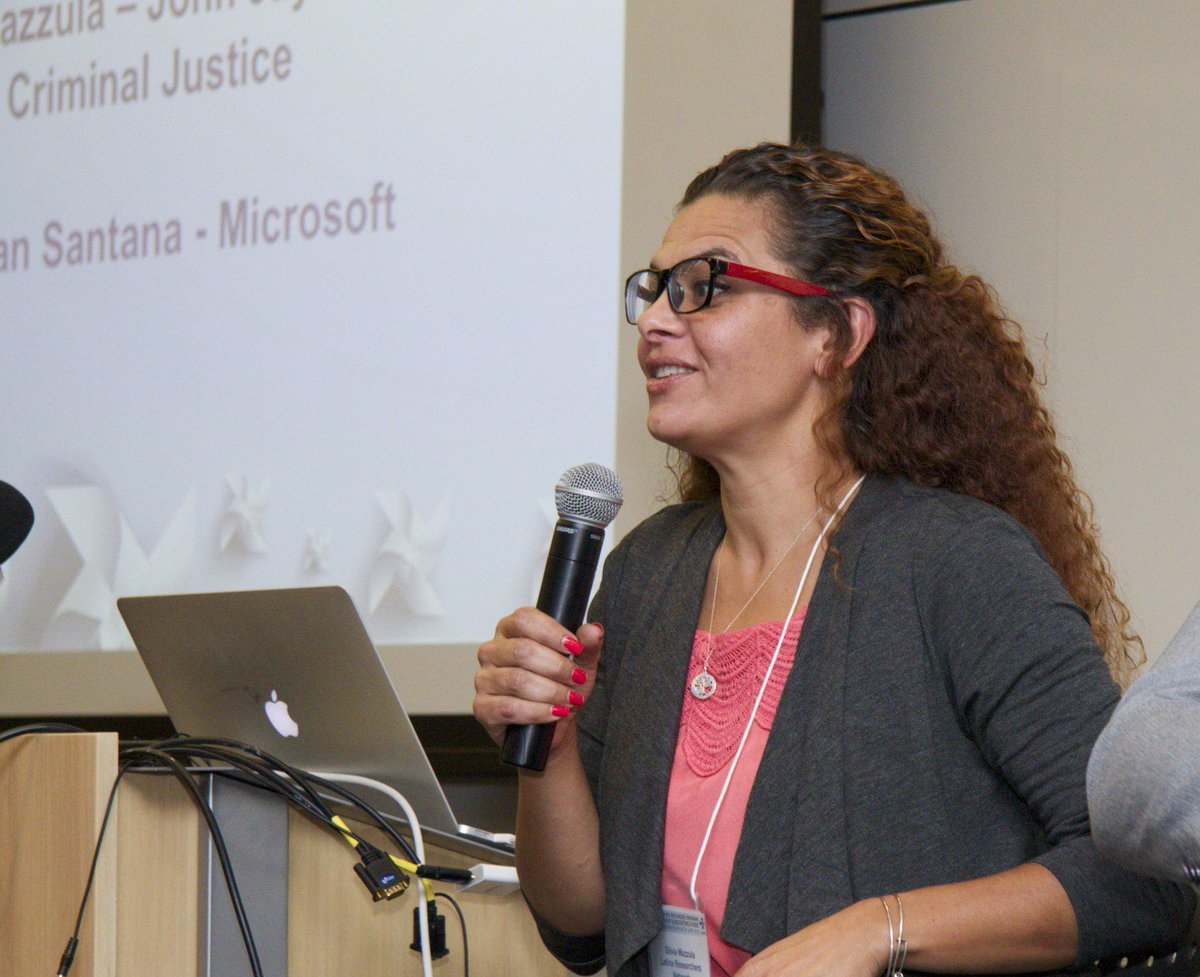
And don’t forget Philip Yanos, who in 2018 not only published his book ‘Written Off,’ but also a monthly column in @PsychToday by the same name. His articles, on stigma attached to mental illness, were cited more than 700 times last year!
#JJCResearch
Find his blog here: (bit.ly/2IQ2w9J)

And last but not least, @JohnJayCollege is home to some great podcasts. Check out @indoorvoicespod, @TWOH_VL, @NewBooksPoliSci, @QualityPolicing, @JohnJayTLC on Teaching and Learning, and @lavueltablog. So much to learn about!



Recent Comments